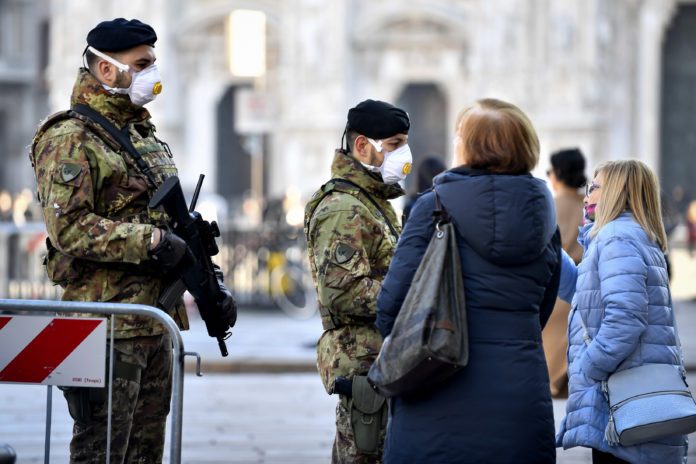
By Meredith Pratt | Staff Writer
Over 200 COVID-19 cases have been confirmed in Italy, with six deaths, according to a report published Monday by the Italian health ministry.
Before Thursday, only three cases were reported. Now Italy possesses the largest outbreak outside of Asia.
The sudden increase in cases has led the Italian government to put several cities on lockdown, including Venice and Milan. Major league soccer matches have been postponed, museums closed, Milan Fashion Week runway shows were restricted and the famous Venice Carnival celebration was suspended.
Baylor students studying abroad have also been impacted by the recent closures and safety precautions.
Austin Junior Emmy Frigo is currently studying abroad in Bologna, Italy. Although she is not living in one of the quarantined cities, she said that she is still “nervous about the outbreak.”
“Everyone here is very cautious,” Frigo said. “It’s stressful.”
Frigo said her classes are being canceled on a week-by-week basis and her exchange student orientation has been postponed until further notice.
“I avoid being close to people and I’m very aware of people coughing and sneezing,” Frigo said. “I keep reminding myself it’s a lot like the flu and that I’m lucky to be younger and healthy so I’m less likely to be affected by the outbreak.”
Frigo said that locally “people are buying all the masks, thermometers and pasta they can.”
Many Italian supermarkets are experiencing a large influx in customers. An article in the New York Times said that one supermarket in Milan ran out of fruit, vegetables, meat and nearly all canned food.
Waco Junior Kate Moffatt is studying abroad in London but was visiting Italy when the news broke about the spike in coronavirus cases. She said when she landed in the Perugia Airport the workers were “wearing masks and full suits.”
“They scanned our forehead with a thermometer,” Moffatt said, but clarified that “every single person made it through.”
Moffatt said she was not initially worried about the outbreak.
“As time went on, I began to realize how much contact I have with strangers just by using public transportation,” Moffatt said. “Then it started worrying me enough to where I’m more cautious about washing my hands and paying attention to who seems sick near me.”
Southlake junior Lauren Clay is based in Paris but made a recent trip to Italy during the spring break of her study abroad trip. She flew to Palermo in Sicily, located in southern Italy.
Like Moffatt, Clay had her temperature checked by workers in medical suits upon her arrival.
“Whether Paris or Italy or Spain, the locals don’t really bat an eye,” Clay said. “The tourists however, especially those from Asia and America, have a tendency to wear masks and even gloves. The largest concentration of people wearing masks is at the airport and on the plane.”
Italian Prime Minister Giuseppe Conte has been vocal about his shock regarding the recent increase in coronavirus cases, but said in an interview “worry is understandable. Panic: no.”





